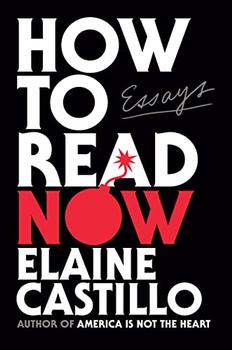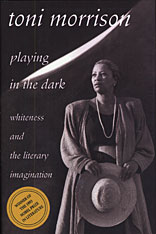Summary | Excerpt | Reviews | Beyond the book | Read-Alikes | Genres & Themes | Author Bio

Essays
by Elaine CastilloAn exploration and polemic that redefines the power and potential for reading by a novelist whose "prose is as good as it gets" (NPR) and who has "a real voice: vernacular and fluid, with a take-no-prisoners edge" (Kirkus).
How many times have we heard that reading builds empathy? That we can travel through books? How often have we were heard about the importance of diversifying our bookshelves? Or claimed that books saved our lives? These familiar words—beautiful, aspirational—are sometimes even true. But award-winning novelist Elaine Castillo has more ambitious hopes for our reading culture, and in this collection of linked essays, "she moves to wrest reading away from the cotton-candy aspirations of uniting people in empathetic harmony and reposition it as thornier, ultimately more rewarding work." (Vulture)
How to Read Now explores the politics and ethics of reading, and insists that we are capable of something better: a more engaged relationship not just with our fiction and our art, but with our buried and entangled histories. Smart, funny, galvanizing, and sometimes profane, Castillo attacks the stale questions and less-than-critical proclamations that masquerade as vital discussion: reimagining the cartography of the classics, building a moral case against the settler colonialism of lauded writers like Joan Didion, taking aim at Nobel Prize winners and toppling indie filmmakers, and celebrating glorious moments in everything from popular TV like The Watchmen to the films of Wong Kar-wai and the work of contemporary poets like Tommy Pico.
At once a deeply personal and searching history of one woman's reading life, and a wide-ranging and urgent intervention into our globalized conversations about why reading matters today, How to Read Now empowers us to embrace a more complicated, embodied form of reading, inviting us to acknowledge complicated truths, ignite surprising connections, imagine a more daring solidarity, and create space for a riskier intimacy—within ourselves, and with each other.
Castillo's lively and expressive writing underscores the idea that reading through the default white supremacist mindset that reaches us invisibly and blandly via American media and the publishing industry is not just lazy, reductive and violent, it's also boring. She plunges into How to Read Now with a sense of excitement, buoyant stylistic flourishes — including one-of-a-kind, unforgettable phrases like "gooey heart-porn of the ethnographic" — and a seemingly irrepressible fondness for astrology (referring to herself at one point as "a bossy Virgo bitch"); this doesn't come across as a gimmick or an attempt to inject humor into dry material, but rather a natural enthusiasm born of the stimulating work of seeing that which is not meant to be seen...continued
Full Review
 (1087 words)
(1087 words)
(Reviewed by Elisabeth Cook).
 The novelist Toni Morrison (1931-2019), author of The Bluest Eye, Beloved and many other famous works, is often considered one of the greatest and most influential American writers. However, as Elaine Castillo draws attention to in How to Read Now, Morrison is known mostly for her novels and less for what is arguably one of the most important texts ever written on American literature, a slim but significant 1992 volume of literary criticism titled Playing in the Dark: Whiteness and the Literary Imagination. Castillo calls Playing in the Dark "the urtext on the insidious racial backbone of our reading culture," and recalls being alarmed when she mentioned it during events on a book tour only to "realize that many in the audience had not read...
The novelist Toni Morrison (1931-2019), author of The Bluest Eye, Beloved and many other famous works, is often considered one of the greatest and most influential American writers. However, as Elaine Castillo draws attention to in How to Read Now, Morrison is known mostly for her novels and less for what is arguably one of the most important texts ever written on American literature, a slim but significant 1992 volume of literary criticism titled Playing in the Dark: Whiteness and the Literary Imagination. Castillo calls Playing in the Dark "the urtext on the insidious racial backbone of our reading culture," and recalls being alarmed when she mentioned it during events on a book tour only to "realize that many in the audience had not read...

If you liked How to Read Now, try these:

by Carvell Wallace
Published 2025
A transformative memoir that reimagines the conventions of love and posits a radical vision for healing.

by Jessica Zhan Mei Yu
Published 2024
"Having been Jane Eyre, Anna Karenina and Esther Greenwood all my life, my writing was an opportunity for the reader to have to be me…"
Education is the period during which you are being instructed by somebody you do not know, about something you do ...
Click Here to find out who said this, as well as discovering other famous literary quotes!